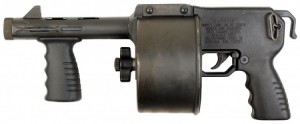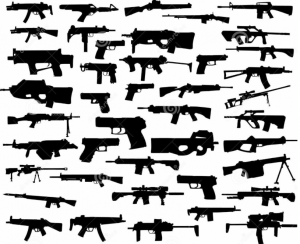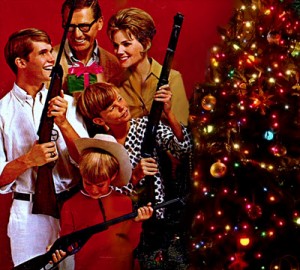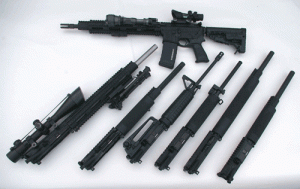
Based upon a recent posting on the Virginia Citizens Defense League Facebook page there seems to be quite a bit of confusion about Virginia’s gun laws where minors and handguns are concerned.
In fact, there seems to be just as much confusion about what actually constitutes a ‘minor’.
So I thought it would be beneficial to break it down step-by-step.
Definitions
Let’s start by defining our terms. As I noted above, there is some confusion about what is meant by the term minor. Luckily, in Virginia we have a definitive answer.
§ 1-207 of Chapter 2.1 of the Code of Virginia which contains rules of construction tells us that “‘Child,’ ‘juvenile,’ ‘minor,’ ‘infant,’ or any combination thereof means a person less than 18 years of age.”
Now that we have the term minor defined, let’s move on to the various age brackets.
Are you under 18 years of age?
Purchase / Acquisition
Those under the age of 21 are prohibited by federal law from purchasing handguns from a licensed dealer. This is codified at 18 USC § 922(b)(1) which reads:
(b) It shall be unlawful for any licensed importer, licensed manufacturer, licensed dealer, or licensed collector to sell or deliver—
(1) any firearm or ammunition to any individual who the licensee knows or has reasonable cause to believe is less than eighteen years of age, and, if the firearm, or ammunition is other than a shotgun or rifle, or ammunition for a shotgun or rifle, to any individual who the licensee knows or has reasonable cause to believe is less than twenty-one years of age;
This leaves open the possibility that those under 18 might be able to acquire firearms from a private seller or as a gift. Let’s look and see what state law has to say about the subject.
Where handguns are concerned, Virginia law generally prohibits any transfer to those under the age of 18. However, there are several important exceptions. This is codified at § 18.2-309(B) of the Code of Virginia which reads:
B. If any person sells, barters, gives or furnishes, or causes to be sold, bartered, given or furnished, to any minor a handgun, having good cause to believe him to be a minor, such person shall be guilty of a Class 6 felony. This subsection shall not apply to any transfer made between family members or for the purpose of engaging in a sporting event or activity.
There is also a federal statute which heavily restricts the ability to transfer handguns to minors. 18 U.S.C. 922(x) provides in part that:
(1) It shall be unlawful for a person to sell, deliver, or otherwise transfer to a person who the transferor knows or has reasonable cause to believe is a juvenile—
(A) a handgun; or
(B) ammunition that is suitable for use only in a handgun.
(2) It shall be unlawful for any person who is a juvenile to knowingly possess—
(A) a handgun; or
(B) ammunition that is suitable for use only in a handgun.
(3) This subsection does not apply to—
(A) a temporary transfer of a handgun or ammunition to a juvenile or to the possession or use of a handgun or ammunition by a juvenile if the handgun and ammunition are possessed and used by the juvenile—
(i) in the course of employment, in the course of ranching or farming related to activities at the residence of the juvenile (or on property used for ranching or farming at which the juvenile, with the permission of the property owner or lessee, is performing activities related to the operation of the farm or ranch), target practice, hunting, or a course of instruction in the safe and lawful use of a handgun;
(ii) with the prior written consent of the juvenile’s parent or guardian who is not prohibited by Federal, State, or local law from possessing a firearm, except—
(I) during transportation by the juvenile of an unloaded handgun in a locked container directly from the place of transfer to a place at which an activity described in clause (i) is to take place and transportation by the juvenile of that handgun, unloaded and in a locked container, directly from the place at which such an activity took place to the transferor; or
(II) with respect to ranching or farming activities as described in clause (i), a juvenile may possess and use a handgun or ammunition with the prior written approval of the juvenile’s parent or legal guardian and at the direction of an adult who is not prohibited by Federal, State or local law from possessing a firearm;
(iii) the juvenile has the prior written consent in the juvenile’s possession at all times when a handgun is in the possession of the juvenile; and
(iv) in accordance with State and local law;
(B) a juvenile who is a member of the Armed Forces of the United States or the National Guard who possesses or is armed with a handgun in the line of duty;
(C) a transfer by inheritance of title (but not possession) of a handgun or ammunition to a juvenile; or
(D) the possession of a handgun or ammunition by a juvenile taken in defense of the juvenile or other persons against an intruder into the residence of the juvenile or a residence in which the juvenile is an invited guest.
So … Those under 18 may legally acquire handguns (ownership) from family members or in a private transfer for the purpose of engaging in a sporting event or activity, or as the federal statute states it … for target practice, hunting, or a course of instruction in the safe and lawful use of a handgun.
However, that is not the end of the analysis. Once they ‘own’ a firearm then we must determine if there are other limitations on its use.
Possession / Carry
There are several statutes which address possession and use of firearms by minors. Let’s start with § 18.2-56.2 which reads:
A. It shall be unlawful for any person to recklessly leave a loaded, unsecured firearm in such a manner as to endanger the life or limb of any child under the age of fourteen. Any person violating the provisions of this subsection shall be guilty of a Class 3 misdemeanor.
B. It shall be unlawful for any person knowingly to authorize a child under the age of twelve to use a firearm except when the child is under the supervision of an adult. Any person violating this subsection shall be guilty of a Class 1 misdemeanor. For purposes of this subsection, “adult” shall mean a parent, guardian, person standing in loco parentis to the child or a person twenty-one years or over who has the permission of the parent, guardian, or person standing in loco parentis to supervise the child in the use of a firearm.
Out of an abundance of caution, I take this code section to imply that legally any minor under the age of 15 should be under the supervision of an adult at any time they are using a firearm.
But that is not all. While offering fairly broad exceptions for private lands, target shooting, and hunting, § 18.2-308.7 further limits the ability of minors to possess and transport handguns in the Commonwealth. It reads in part :
It shall be unlawful for any person under 18 years of age to knowingly and intentionally possess or transport a handgun … A violation of this section shall be a Class 1 misdemeanor.
This section shall not apply to:
1. Any person (i) while in his home or on his property; (ii) while in the home or on the property of his parent, grandparent, or legal guardian; or (iii) while on the property of another who has provided prior permission, and with the prior permission of his parent or legal guardian if the person has the landowner’s written permission on his person while on such property;
2. Any person who, while accompanied by an adult, is at, or going to and from, a lawful shooting range or firearms educational class, provided that the weapons are unloaded while being transported;
3. Any person actually engaged in lawful hunting or going to and from a hunting area or preserve, provided that the weapons are unloaded while being transported; and
4. Any person while carrying out his duties in the Armed Forces of the United States or the National Guard of this Commonwealth or any other state.
In addition, 18 U.S.C. 922(x) governs possession and use as well as initial transfer.
In summary, those under 14 should be supervised by an adult while using handguns and those 15 through 17 should not possess handguns outside of the exceptions laid out in § 18.2-308.7 of the Code of Virginia and 18 U.S.C. 922(x).
Are you 18 through 20 years of age?
Purchase / Acquisition
As noted above, those under the age of 21 are prohibited by federal law from purchasing handguns from a licensed dealer by the provisions of 18 USC § 922(b)(1).
However, there is no prohibition under Virginia law preventing someone 18 years of age or older from acquiring a handgun via a private sale.
Therefore, it is perfectly legal for someone 18 to 20 years of age, who is otherwise not prohibited from possessing firearms, to acquire one via a private sale.
Possession / Carry
Virginia is an unlicensed open carry state. Additionally, there is no prohibition under Virginia law preventing someone 18 years of age or older from openly carrying a legally-owned handgun.
The only disability that applies to those 18 to 20 years of age is an inability to apply for, and receive, a Virginia concealed handgun permit (CHP). § 18.2-308.02 of the Code of Virginia limits this to those 21 years of age or older. It reads in part:
A. Any person 21 years of age or older may apply in writing to the clerk of the circuit court of the county or city in which he resides, or if he is a member of the United States armed forces, the county or city in which he is domiciled, for a five-year permit to carry a concealed handgun ….
The summary for those 18 to 20 years of age is much simpler than that for minors. These legal adults may acquire handguns through private sales and may openly carry them so long as they avoid those places statutorily off limits to open carry. Their only limitation is an inability to apply for, and receive, a concealed handgun permit.
One final point
One of those who commented on the VCDL Facebook page posited that since § 18.2-308.2:1 (which makes it a felony to provide a firearm to someone prohibited under § 18.2-308.7) does not have the same exceptions as § 18.2-308.7 that this creates a conflict in the law.
That is not the case. If someone meets one or more of the exceptions in § 18.2-308.7 then they are NOT prohibited under § 18.2-308.7 and therefore § 18.2-308.2:1 never applies.
Disclaimer: This information is presented for educational purposes only and does not give rise to an attorney-client relationship. Additionally, I am licensed to practice law in the Commonwealth of Virginia and this answer may not be appropriate for other states.

 From a legal perspective Virginia’s NFA collectors have it pretty good.
From a legal perspective Virginia’s NFA collectors have it pretty good.
 With the holidays fast approaching, I suppose it was only a matter of time before I was asked this question. After all, a quality firearm, treated with respect and care, is an heirloom that can last for generations.
With the holidays fast approaching, I suppose it was only a matter of time before I was asked this question. After all, a quality firearm, treated with respect and care, is an heirloom that can last for generations. May I have extra uppers or butt stocks for my SBR in the same gun safe as Title 1 lowers?
May I have extra uppers or butt stocks for my SBR in the same gun safe as Title 1 lowers?



